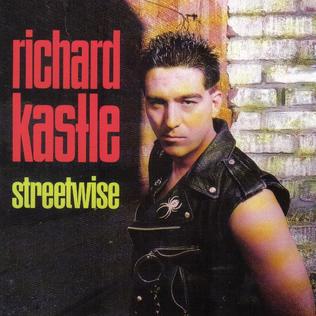Nice, Mikey will be all over this when he returns from his tour =)
The opening bar of GE-8 isn’t hard - it’s impossible. I haven’t played through all these myself either, but by ear my vote would otherwise go for FF from 1) and Symph-9 from 2).
Nice, Mikey will be all over this when he returns from his tour =)
The opening bar of GE-8 isn’t hard - it’s impossible. I haven’t played through all these myself either, but by ear my vote would otherwise go for FF from 1) and Symph-9 from 2).
I also think, incidentally… I’ve played Norma and the Sonata myself, and I’m intimately familiar with Les Hugenots - they’re all hard, but I don’t think they deserve a place on a list like this. Kudos for catching the obscure Lucrezia Borgia and Spanische Weisen though which certainly do.
Rezpec da  Driftah entry!
Driftah entry!
1 zheeyat ov HUGE NOTE on diz whole ‘hardezt zheeyat’ debate
U abzolutely HAVE TO factor in how itz played
da LEZBO technically play all da notez but he zoundz lyk he RUZHED learning dem inztead ov RUZHED while playin dem 
Tempo ov execution iz a HUGE factor in difficulty.
a NOTE PERFECT Fur Elize in 30 zecz iz harda den A NOTE PERFECT Liszt etude in 75% tempo
Acquaint yozelf wiz da WIM :wim:
now acquaint yozelf wiz da
WIN 
1 letta make all da difference 

Gould should not be in that company.
haha who da fuk is dis guy?

That’s the  we talked about here earlier this year. Best interview in the history of the piano!
we talked about here earlier this year. Best interview in the history of the piano!
Betta perf den da lezbo 
a great novel writah wud be embarazzed if we find n publizh da earliah draftz of hiz novelz
zimilarly I think tiz juz rude n dizrezpectful to play or lizten to da GEz 
Nah. I like seeing how they evolved. There’s not a single one among them I prefer in their earlier versions though.
I quite like a lot of things in the GEz. I have the
feeling that da  was just bursting with ideas here, and self-censored in the later version, for reasons both of facilitation and concision.
was just bursting with ideas here, and self-censored in the later version, for reasons both of facilitation and concision.
Da Busoni reportedly preferred the Eroica in the 1837 version.
Tbh I think I da 1837 Zepp moizt zect is probably an improvement.
I prefer when the ticklah in the right hand comes down in da revised version
In da 1837 it ascends and stays each time, pretty but mildly  IMHO
IMHO
I’m addicted to  'z intahlocking octz in 1851 zepp. If I listen to that rec it iz almozt certain I’ll listen to da octzzpazz about ten timez.
'z intahlocking octz in 1851 zepp. If I listen to that rec it iz almozt certain I’ll listen to da octzzpazz about ten timez.
Oh man. I wish we had a  1935 Mazeppa tho.
1935 Mazeppa tho.
Sum review fuckah wrote something to da effect of “da Mazeppa brings out all da deficiencies of da  tone production”
tone production”
He was probably used to  interps of da zong.
interps of da zong.
A BAR zepp would have been fun 
I’d love a BAR FF honestly. He’s also made fo da Coldfart n 10-1, which were both in his rep.
Da Ho dropped da Mazeppa from his rep after 1935 
Apparently in his rep fo less den a year - first located perf Nov 3, 1934 and da last perf likely:
March 10, 1935*: Orchestra Hall, Chicago, Illinois
Bach/Busoni: Prelude & Fugue in D major, BWV 532
Scarlatti: Sonata in B minor [unspecified]
Scarlatti: Sonata in G major [unspecified]
Schumann: Humoresque, Op.20
Brahms: Variations on a theme by Paganini, Op.35 [a total selection of 12 variations from the two books]
Chopin: Barcarolle in F-sharp major, Op.60
Chopin: Mazurka in C-sharp minor, Op.50 No.3
Chopin: Etude in C-sharp minor, Op.10 No.4
Chopin: Etude in G-flat major, Op.10 No.5 (Black key)
Debussy: Etude No.3 (Pour les quartres)
Debussy: Etude No.6 (Pour les huit doigts)
Liszt: Valse Oubliée No.1
Liszt: Mazeppa (Etude No.4 from 12 Études d'éxecution transcendante)
[Encores included unknown works by Debussy, Brahms, Chopin, and, to send everyone home happy............ Horowitz's own Carmen Variations of course, as the final encore]
Thank you @xsdc
Makes you want to hear da BUZ! 